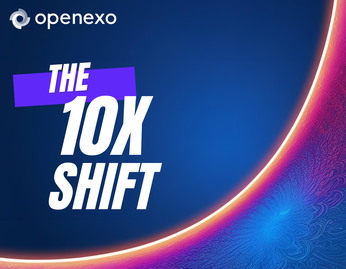Exponential Organizations

How to Operate in a New Web3 World Paid Members Public
Web3 is a cultural movement, a whole new philosophy. It goes beyond coding and finance. It is a new world that enables creators and users to capture the value you create, and we need to understand what it means and how we should change our operational models.

ExI: Creating Tools to Empower Exponential Individuals Paid Members Public
This article & podcast were created to celebrate the one-year anniversary, project highlights, AND most importantly a call to action to for others to join the project to accelerate breakthroughs for individuals and contribute to "Making Human Optimization and Self-Awareness the Norm."

Build Your Ecosystem With a 30-Doubling Challenge - Interview With Niki Faldemolaei Paid Members Public
"This was definitely successful, but it was just the beta. The first time you do something, you don't build an entire automated software. So we started with the basics."

Embracing and Embedding Exponentially Paid Members Public
Leveraging the 11 ExO attributes as the new cornerstones, an organization can aspire to be purpose-driven, aim to disrupt instead of getting disrupted, and strive to deliver sustainable and exponentially superior business results.

Forget Startups, ExOs (Exponential Organizations) Are The New Way To Innovate Paid Members Public
When you lower the cost of supply, you decrease the denominator and your market cap explodes. This is one of the reasons why there are so many unicorns these days.

The Human Side Of Digital Business Transformation Paid Members Public
The successful execution of any transformation effort is characterized by changing fundamental beliefs and developing new behaviors in an organization, resulting in a long-term shift toward a new strategic direction.

The Future Is Faster Than You Think Paid Members Public
If we limit ourselves to large companies, in the last 60 years, almost 90% of the Fortune 500 have disappeared and a further 40% are expected to disappear in the next ten years, according to the study of the Washington University St. Louis.







